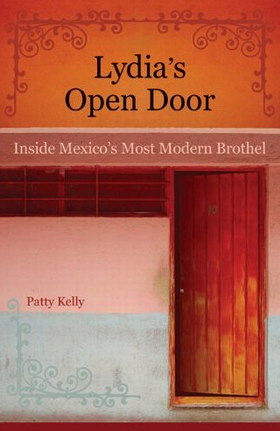An increasing number of women are becoming involved in Mexico’s drug trade. Anthropologist Howard Campbell has conducted fieldwork among female smugglers on the U.S.-Mexico border, The Dallas Morning News reports.
Dallas Morning News refers to Campbells paper that was published in the Anthropological Quarterly Winter 2008 issue.
The anthropologist has resided and worked in the border region for 15 years. He writes that women’s involvement in drug trafficking has expanded dramatically. Yet there are few studies of female drug smugglers, the causes of female involvement in smuggling, and the impact of smuggling on women’s lives specifically:
Ethnographic research on drug issues tends to focus on drug use and abuse; anthropological studies of trafficking organizations, because of the dangers such work entails, are limited. The major studies, with some exceptions (Anderson 2005) have little information on women, treat them as secondary and subsidiary to men, or else focus on women’s mostly subordinate, victimized role in street-level crack-dealing in American cities
He portraits a variety of drug smugglers, among others Zulema who belongs to the “high-level female drug smugglers” who enjoy “a pleasurable lifestyle and relative autonomy from men.
He argues that women, like men, may obtain excitement, adventure and thrills from engaging in illegal activities such as drug smuggling. We should not assume, that women’ s sole motivation for engaging in crime is narrowly economic or subsistence oriented:
Zulema revels in the money, power and independence she reaped from cocaine and heroin smuggling . Although she was raised in an upper-middle-class Catholic household in a small north central Mexican town, as a teenager Zulema left the comforts of her bourgeois home and nun’ s school to live with a “wild aunt” in a poor barrio of Ciudad Juárez on the U.S.-Mexico border.
This aunt was – in Zulema’s words “a whore, a drunk, a crazy woman, and considered the black sheep of the family”.
The anthropologist writes:
Contrary to standard interpretations of women’ s motivation for entry into drug smuggling, Zulema was initially attracted to crime, including drug-selling, by the opportunity it presented for adventure and revolt against bourgeois lifestyles.
Consciously rebellious, Zulema discarded the discreet attire of her social class and donned a masculine chola outfit. (…) Zulema’s macho style and determination gained her acceptance in the then male-dominated drug world and allowed her to move upward.
(…)
Drug trafficking profits allowed her to achieve a freedom from male control that was available to few other women of her background. After “ El Mexicano’ s” death Zulema became the leader of her own heroin and cocaine smuggling ring in maj or Texas cities in the 1990s.
(…)
Zulema’ s life and that of other female drug lords, though not typical of average smugglers, sharply contradict cultural stereotypes about Mexican female passivity or that the only role for women in the drug life is that of “trophy wife.
(…)
Although Zulema’s case may seem extreme, there are other similar cases of powerful female drug lords, though they seldom appear in social science literature on drugs which emphasize women’s victimization.
All in all, he divides his informants in four different categories of smugglers. He summarizes:
High-level female drug smugglers may be attracted to the power and mystique of drug trafficking and may achieve a relative independence from male dominance.
Middle-level women in smuggling organizations obtain less freedom vis-à-vis men but may manipulate gender stereotypes to their advantage in the smuggling world.
Low-level mules also perform (or subvert) traditional gender roles as a smuggling strategy, but receive less economic benefit and less power, though in some cases some independence from male domestic control.
A fourth cate gory of women do not smuggle drugs but are negatively impacted by the male smugglers with whom they are associated.
I argue that drug smuggling frequently leads to female victimization, especial y at the lowest and middle levels of drug trafficking organizations. However, it is also, in the case of high-level and some low-level and middle-level smugglers, a vehicle for female empowerment
His paper is only available to subscribers.
>> Mexico’s drug war shows a virulent feminine side (Dallas Morning News
SEE ALSO:
Online: On the Margins – An Ethnography from the US-Mexican Border
Why borders don’t help – An engaged anthropology of the US-Mexican border
An increasing number of women are becoming involved in Mexico's drug trade. Anthropologist Howard Campbell has conducted fieldwork among female smugglers on the U.S.-Mexico border, The Dallas Morning News reports.
Dallas Morning News refers to Campbells paper that was…


